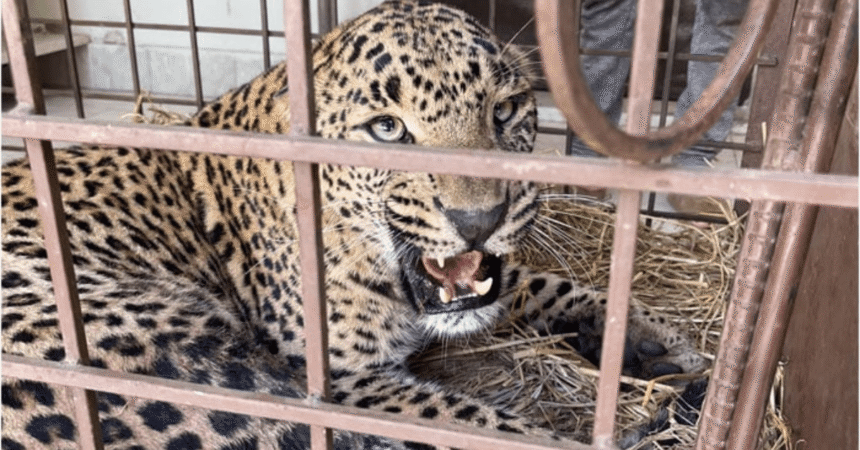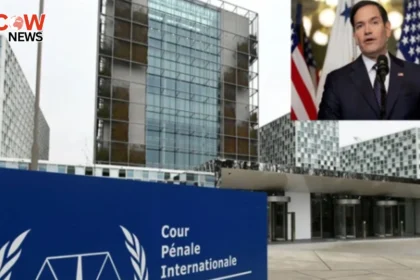In recent weeks, the heart-wrenching story of Malika, a female leopard critically injured by gunshot wounds, has highlighted the ongoing crisis of wildlife conservation in Pakistan. Rescued from a nullah in Azad Jammu and Kashmir (AJK), Malika succumbed to her injuries despite the dedicated efforts of veterinarians at the Islamabad Wildlife Management Board (IWMB). This tragic incident serves not only as a reminder of the dangers faced by wildlife but also calls for urgent action to protect endangered species and their habitats in the region.
The Rescue Operation
On September 7, Malika was discovered by wildlife guards in a severely injured state. Initially, they believed she had sustained internal injuries, as she was unable to stand or move her hind legs. The absence of visible external wounds made the situation even more perplexing. It was only after an X-ray examination that the shocking truth emerged: Malika had been shot multiple times.
Following her rescue, Malika was transferred to the IWMB’s rescue center, where a team of veterinarians quickly sprang into action. The initial assessments revealed four bullet wounds, one of which was located dangerously close to her heart. This discovery prompted an urgent surgical intervention, with the goal of removing the bullets and stabilizing her condition.
Medical Challenges
The veterinary team at the Islamabad Wildlife Rescue Centre (IWRC) performed an emergency surgery to extract one of the bullets from Malika’s body. However, the remaining bullets lodged in her vertebrae and near vital organs severely complicated her recovery. Her condition was declared “critical,” and despite the best efforts of the medical staff, she ultimately succumbed to her injuries. The extracted bullet was confirmed to have been fired from a 12-bore shotgun, raising serious concerns about poaching and illegal hunting practices in the region.
The loss of Malika not only represents a significant setback for conservation efforts but also highlights the urgent need for greater awareness and enforcement of wildlife protection laws in Pakistan. As one of the nation’s protected species, leopards are integral to the ecosystem, and their survival is crucial for maintaining ecological balance.
Investigative Efforts
In the wake of Malika’s death, the AJK Wildlife Department initiated an investigation to determine the circumstances surrounding her shooting. An application was submitted to local police to register a First Information Report (FIR) against unidentified attackers. This investigation is critical, as it aims to bring to justice those responsible for this egregious act against wildlife.
The ongoing investigation underscores the challenges faced by authorities in combating wildlife crime. Despite legal protections, poaching remains a pervasive issue in Pakistan, driven by a lack of awareness and inadequate enforcement of laws. The case of Malika serves as a catalyst for broader discussions about the need for comprehensive wildlife protection measures.
The Status of Leopards in Pakistan
Leopards are classified as a protected species under Pakistani law, making it illegal to hunt or capture them. Despite this legal framework, their populations continue to decline due to habitat loss, human-wildlife conflict, and illegal hunting. Commonly found in the northern regions of Pakistan, leopards are increasingly coming into contact with human settlements as their natural habitats shrink.
The primary threats to leopard populations include deforestation and habitat fragmentation, which disrupt their natural ecosystems and diminish their prey availability. Additionally, socio-economic factors such as poverty and illiteracy contribute to the ongoing conflict between humans and wildlife, as communities may resort to poaching as a means of subsistence.
Community Awareness and Engagement
The tragic fate of Malika serves as a stark reminder of the need for community awareness and engagement in wildlife conservation efforts. Many local communities may not fully understand the importance of preserving biodiversity and the role that species like leopards play in maintaining ecological balance. Educational initiatives that promote awareness about wildlife conservation can help foster a sense of responsibility and stewardship among community members.
Conservation organizations emphasize the importance of engaging local communities in wildlife protection efforts. By involving them in conservation programs and providing alternative livelihoods that do not rely on poaching, it is possible to create a more sustainable coexistence between humans and wildlife. Initiatives such as community-based ecotourism can empower locals economically while also promoting the conservation of their natural heritage.
The Role of Legislation and Enforcement
While legal protections for leopards exist, the effectiveness of these laws largely depends on proper enforcement. The Pakistani government has made strides in creating policies aimed at protecting endangered species, but there is a pressing need for stronger enforcement mechanisms. Increased patrols in wildlife habitats, harsher penalties for poachers, and better training for wildlife rangers can contribute to more effective conservation efforts.
Moreover, international cooperation is crucial in the fight against wildlife trafficking. Collaborative efforts with global conservation organizations can enhance the capacity of local authorities to combat poaching and protect endangered species. Raising awareness on a global scale about the importance of protecting wildlife can lead to increased support for conservation initiatives in Pakistan.
The Impact of Habitat Loss
In addition to poaching, habitat loss remains one of the most significant threats to leopard populations in Pakistan. Rapid urbanization, agricultural expansion, and deforestation are leading to the fragmentation of their natural habitats, which in turn affects their ability to find food, mate, and raise their young.
Conservation efforts must address the root causes of habitat loss by promoting sustainable land-use practices and protecting critical habitats. Creating protected areas and wildlife corridors can help preserve essential ecosystems and allow leopards to thrive in their natural environments. Furthermore, restoring degraded habitats through reforestation and conservation agriculture can provide long-term benefits for both wildlife and local communities.
The Psychological Toll of Wildlife Conservation
The emotional impact of wildlife conservation extends beyond the animals themselves. Conservationists and wildlife rehabilitators often experience significant stress and grief when faced with the loss of an animal like Malika. The psychological toll of working in such a challenging field can lead to burnout and disillusionment.
To support those involved in wildlife conservation, it is essential to prioritize mental health and well-being. Providing resources for self-care, mental health support, and professional development can empower conservationists to continue their important work without compromising their own well-being.
Conclusion: A Call to Action
The tragic death of Malika is not just a story of loss; it is a wake-up call for wildlife conservation in Pakistan. As the country grapples with the challenges of protecting its rich biodiversity, the need for collective action has never been more pressing. From strengthening legal protections and enforcement to promoting community awareness and engagement, every effort counts in the fight against wildlife crime and habitat loss.
As we reflect on the life and death of Malika, let us remember that she represents not just one individual animal but the broader struggle for the survival of endangered species. It is a call to action for governments, communities, and individuals alike to come together to protect our natural heritage and ensure that future generations can enjoy the beauty and diversity of wildlife in Pakistan.
The legacy of Malika should serve as an inspiration for change, reminding us of the importance of safeguarding our planet’s wildlife. By advocating for stronger protections, raising awareness, and fostering a culture of conservation, we can help create a future where both humans and wildlife can coexist harmoniously.
#WildlifeConservation #Malika #Leopard #EndangeredSpecies #Pakistan #AnimalRights #StopPoaching #Biodiversity #CommunityAwareness #ConservationEfforts







